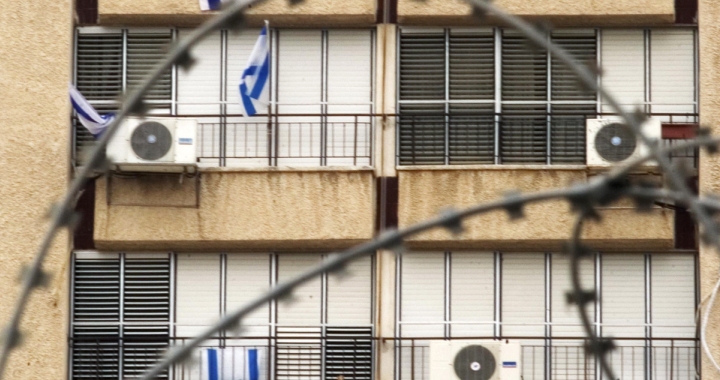Isaiah 1:10-20 is a sobering prophetic passage in which God reams out the Israelites for thinking that they can honor Him while mistreating the most vulnerable of His people. We play the same game the ancient Israelites did. So many Christians today abstract their vertical relationship with God from their horizontal relationships with their neighbors and even pit the vertical against the horizontal. This is why I’m very suspicious of people who make a big fuss over glorifying God in the abstract as an act of zealous piety without exhibiting the generosity and mercy towards others that shows their genuine deliverance from the self-justification that Adam brought into the world. The abstraction of God from the creation He loves is the root of a particular immorality that afflicts God’s most zealous cheerleaders.
It’s important to point out that the injustice which offends God in this passage is not active abuse but neglect — the failure to “seek justice” by “relieving the oppressed, vindicating the orphan, [and] pleading for the widow” (Isaiah 1:17). These are not things that fall under justice according to the iustitia of blind-folds and scales that Western civilization inherited from the Roman Empire. Nobody broke any laws or showed favoritism. But the Biblical justice of משפט (mishpat) is not impartial; it is rather maximally partial to the welfare of each individual. God is saying that our Western bourgeois morality of staying out of other people’s space and keeping ourselves from posing a burden to others is inadequate and is in fact an utter failure of our humanity when we use it to justify our lack of compassion as many Christians today do.
The Bible recognizes in a way that our Greco-Roman juridical ethos doesn’t that injustice happens even when no one person can be “legitimately” held responsible. When society is structured in a way that people are impoverished and disempowered, sin has occurred even if no single individual can be blamed. Latin American theologian Jon Sobrino talks about the need for Jesus’ cross to accomplish the “perdón de la realidad” (the forgiveness of and deliverance from sins without identifiable agents). A lot of sin happens in our world right now through abstraction, when the decisions that harm others are separated by enough degrees of causation that the decision-maker can genuinely profess ignorance. This is often caused by utilitarianism, when we settle for what is beneficial to the majority rather than advocating for the one sheep out of one hundred who will be hurt.
Also by Morgan: Can Israel Love Its Enemies in Gaza and Keep Its People Safe?
I understand that decision-makers would never get anything done if they waited until they came up with the perfect system that would maximize benefit to all people. But Isaiah makes it pretty explicit that we “have blood on our hands” (v. 15) if we are not “relieving the oppressed, vindicating the orphan, and pleading for the widow.” What might seem like a radical, unreasonable standard for justice on the part of Isaiah is corroborated by Jesus whose most vivid accounts of damnation come in parables about people privilege neglecting (and not actively abusing) the oppressed: the rich man who ignores Lazarus in Luke 16:19-31 and the goats who never love Christ in “the least of these” in Matthew 25. We have acclimated to an account of justice in which “charity” is a bonus, when what God has to say in Isaiah 1 is that we are mocking Him to sing “Worthy is the lamb” if it does not compel us to seek out the welfare of those who are being crucified today.
God does not need our bulls or incense. He does not need our testimony of how much He has blessed us or our thunderous shouts of “God is good!” He does not need us to raise our hands and close our eyes when we praise Him. We need to do these things insofar as they transform us into vessels and vassals of God’s mercy, which is not something held in dialectic tension with God’s justice, but is rather the means by which He accomplishes justice. חסד (hesed), the Hebrew word for mercy, means mercy because it refers to the fiercely loyal steadfast love you have for your innermost family. The ethos of “family values” is completely misguided if it serves as the justification of keeping your חסד inside your white picket fence. We do have a special responsibility to our nuclear family as an inner sphere of more intense discipleship (ecclesiola) in which our goal is to make our sons and daughters people of mercy who accomplish God’s justice.
When God’s חסד reigns over people, they treat everyone as a brother or sister whom it is their problem to advocate for. This is where צדק (zedek), or covenantal righteousness, comes in. Jesus shows us צדק through His willingness to redeem our failed covenant with God trough His cross. People who have been gifted with this צדק through the justifying blood of Christ take up their crosses and make other people’s suffering their problem. They do not see it as less than a duty to plead for the widow and relieve the oppressed even though this duty does not justify us before God but simply shows that what He has done for us compels us to show the world through our חסד and משפט that He is worthy of our constant worship.
—
Morgan Guyton is the associate pastor of Burke United Methodist Church in Burke, Virginia, and a Christian who continues to seek God’s liberation from the prison of self-justification Jesus died to help him overcome. Morgan’s blog “Mercy Not Sacrifice” is located at http://morganguyton.wordpress.com. Follow Morgan on twitter at https://www.twitter.com/maguyton.

